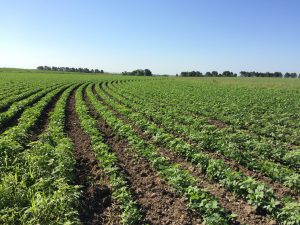Response to “The Organic Industry Is Lying to You”
 In his article “The Organic Industry Is Lying to You”, posted on August 5, 2018, Miller shows a lack of understanding about the organic label, and spreads some unfortunate fallacies.
In his article “The Organic Industry Is Lying to You”, posted on August 5, 2018, Miller shows a lack of understanding about the organic label, and spreads some unfortunate fallacies.
We were surprised to see an article from him in as high quality a newspaper as the Wall Street Journal, given the fact that he was recently dropped from Forbes for allowing Monsanto to ghostwrite for him, and like his past articles this one was full of deceptive half-truths.
First, he conflates organic and non-GMO – while organic food can’t be produced with GMO’s, that is just one small piece of organic. Organic foods must also adhere to a wide array of other regulations that ensure the health of farmers, consumers, and the environment.
He also claims that organic farmers are no different from conventional farmers when it comes to the use of pesticides. In reality, nothing could be further from the truth. To start with, organic farmers can only use organic-approved materials when all other preventative and management systems fail. Organic farmers are required by the USDA Organic Program to develop and follow a plan that relies on integrative practices to control pests such as crop rotation and soil health strategies.
As a last resort, if the preventative measures taken by organic farmers fail, organic farmers are permitted to use a limited number of pesticides approved by the National Organic Program. While there are approximately 900 synthetic pesticides approved for use in conventional farming, the National Organic Program only allows around 25 synthetic materials, and those must be proven to pose little risk to human health or the environment. The need to support the human and ecosystem health goes for naturally derived substances as well, so even biological products that have been deemed harmful to humans and the environment are banned from use in organic farming.
Finally, the organic standards are dynamic, and organic farmers and researchers are always working on ways to reduce pesticide use beyond the limited scope of what’s allowed in organic. Organic stakeholders proactively seek to use the most recent science and technology to improve the quality of food and organic production. These advances aren’t limited to organic – they can also be adopted by conventional farmers to advance safety and sustainability in all of agriculture.
Organic production represents the best technology of our food system to reduce the use of chemicals. For Mr. Miller to say there is no difference between organic and conventional farmers in their use of pesticides is just plain wrong.


